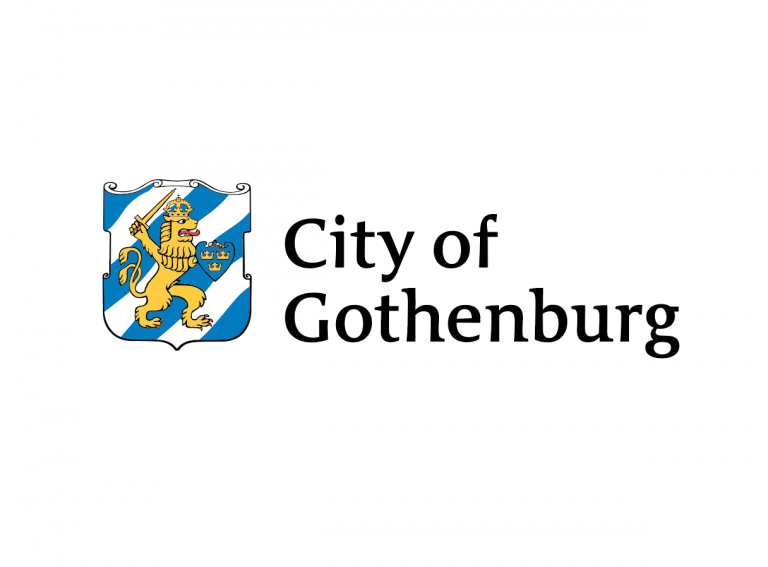Gothenburg
Updated on 05.11.2024
Gothenburg is Sweden’s second largest city and one of its largest employers, with ~ 55 000 employees. The city is a frontrunner in the green transition and has adopted ambitious goals to reduce waste by 40 % and decrease climate impact from purchases by 90 % within its operations. In 2022, Gothenburg was chosen as one of the Horizon Europe 100 Climate Neutral and Smart Cities.

More information
Gothenburg City Leasing is the department responsible for leading and coordinating the city’s circular strategy, due to its core mission of financing the city’s products and services. Gothenburg’s circular work is carried out cross-sectorally, with 50–75 people working on the circular transition as part of their daily mission. A strategy group was formed in 2021, consisting of representatives from ten key departments.
Urban rural predominance
Predominantly urban
Circular Systemic Solution
'Making the city a circular customer by 2030 and developing broad collaboration for a Circular Gothenburg'
Gothenburg aims to transform their administration into a thriving hub for circular innovation by integrating circularity into every facet. For this purpose, they have identified relevant development areas, action points to focus on, and the key departments that can be a driving force behind their circular vision. To further anchor circularity into their work and ensure long-term sustainability, circular actions are being embedded into existing plans and budgets.
Gothenburg has also initiated market transition dialogues with suppliers to investigate the possibility of setting circular requirements in future procurements, with the aim of reducing the city’s climate impact by 90% by 2030. The next step is to systematise the dialogues, depending on value chains and market maturity levels.
Moreover, to support capacity-building and achieve common sustainability goals, Gothenburg will create arenas and platforms for co-creation, mobilising key actors in the city’s organisation. The city also aims to increase collaboration between local stakeholders (businesses, city administration, and the public) to implement its circular economy strategy. This includes using existing ECLECTIC project funding for material flow analysis, stakeholder engagement, and for developing action plans.
Depending on the outcome of this project, further funding will be sought, if needed, to develop and continue broader collaboration to reach common goals. A pre-study on the market potential of Urban Industrial Symbiosis (UIS) was carried out in 2024, and another ongoing pre-study is exploring the role of the city organisation in UIS-development. These studies will serve as a basis for a future UIS strategy.
Objectives
- Decrease waste within the city organisation through systemic change in purchasing and end-of-life (EoL) management, focusing on capacity building and multi-stakeholder cooperation.
- Reduce the volume of residual waste from households and industry.
Systemic nature
The sectors/value chains addressed in work towards making Gothenburg a circular customer by 2030 are furniture, toys, working clothes/textiles, construction materials, electronics, and vehicles. Food and various industrial side-streams may also be included in developing broad collaboration for a circular Gothenburg. This approach requires the involvement of diverse stakeholder groups, such as businesses, city administration, households/the general public, and academic actors.
The holistic nature of the circular systemic solution requires a broad approach that addresses multiple elements, including circular business models, regulatory aspects, innovative governance strategies, and stakeholder engagement models, with the aim of achieving resource efficiency, reducing emissions, and cost savings.
Expected impact
Gothenburg’s Circular Systemic Solution will integrate circularity into all processes of the city administration, thereby contributing to the goal of 90% less climate impact from the city’s purchases and to circularity targets across multiple sectors. The solution will also drive circular business models and contribute to reduction of waste from households, ensuring a holistic perspective.
The Circular Economy in the city/region
Link to existing circular economy strategy and/or action plan
A circular strategy group, formed in 2021 with representatives from ten different key departments, has developed a roadmap and Circular Economy Action Plan (CEAP) as part of the Environment and Climate Programme 2021-2030. The actions are developed and carried out cross-sectorally, together with different stakeholders:
- According to three circular sub-strategies, Gothenburg aims to become a Circular Customer, and will collaborate and act for a Circular Gothenburg, becoming a circular forerunner nationally and internationally. Actions implemented between 2022 and 2024 will provide increased capacity for circular transition by:activating the city's own demand for circular business models, circular design, and reused and recycled materials through circular adaptation of existing and new procurement agreements;
- Stimulating the market to move from linear to circular business models;
- Providing good conditions and developed systems within the city's organisation, or reusing, sharing, repairing, and renovating products;
- Developing a systemised collaboration for a ‘Circular Gothenburg 2030’ and becoming a circular forerunner nationally and internationally;
- Establishing a Memorandum of Understanding between nearly 40 public and private property owners on circular construction and demolition.
Leading organisation
City of Gothenburg
Unit/department/section
- Cirkulära Goteborg
- Gothenburg City Leasing
Participation in other relevant initiatives
- NetZeroCities (Mission and Pilot city)
- Covenant of Mayors
(Other) Key resources
- Cirkulära Göteborg (Circular Gothenburg)
- Förutsättningar för omställning till målbilden "vi är den cirkulära kunden" (Conditions for transitioning to the “we are the circular customer” vision)
- Tolka hur cirkulär ekonomi kan bidra till att staden minskar sin klimatpåverkan med 90% (How the circular economy can help the city reduce its climate impact by 90%)
- Cirkulära möbelflöden i Göteborgs Stad– Arbetssätt, system och verktyg (Circular furniture flows in the City of Gothenburg - Working methods, systems and tools)
- Framtidsscenario 2030: cirkulär upphandling av byggoch rivningsprojekt (Future scenario 2030: circular procurement of construction and demolition projects)




